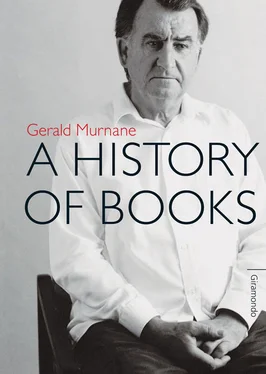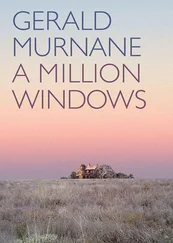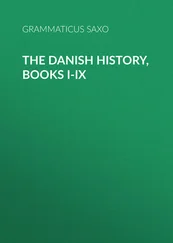I suppose the last traces of Grasslands would have melted away several years after I had left the Farm. And yet, the settlement of Outlands did not outlast Grasslands by many years. At some time in the 1960s, I heard that the settlement no longer existed, although several of the married couples who had been among the last settlers still remained on the site. They had bought a share each of the land and had survived as farmers.
At some time in the early 1970s, after I had been married for several years and was the father of two children, I decided I had better make my Last Will and Testament with the help of a legal practitioner. While I was looking into the telephone directory at the pages where legal practitioners advertise their services, I saw a very rare surname that I had only once previously come across. I understood from what I saw that the bearer of the surname was the principal of a firm of legal practitioners in an inner eastern suburb of Melbourne, where the value of the most modest house was three times the value of my own house. After I had looked at the initial of the first given name of the principal just mentioned, I became convinced that the man I had heard of twenty and more years before as one of the founders of Outlands was now a prosperous legal practitioner in one of the best suburbs of Melbourne, so to speak.
Only a year or so after the events reported in the previous paragraph, I heard of the death of Nunkie. I had seen him only occasionally during the years since I lived briefly at the Farm, but I took steps to attend his funeral service.
I sat near the rear of Nunkie’s parish church and saw hardly anything of the chief mourners until they came down the aisle with the coffin. Among the leading mourners was a man of middle age whose appearance could only be called commanding. He was very tall, strongly built, and olive-skinned. He had a mane of silvery hair and a nose like an eagle’s bill. He looked continually about him, nodding to this person and that. He did not nod at me, but I was sure he took note of me. And while his black eyes measured me, I was aware of what a weak, ineffectual person I have always been and of how much I have needed to be guided and inspired.
At the side of the commanding man was a woman with a pretty face. She was perhaps ten years younger than the man and was herself approaching middle age, but I could readily recall how she had looked twenty and more years before. She kept her eyes down as she passed.
Behind the couple mentioned above were four young persons who were obviously their children. I estimated from the seeming age of the oldest that the parents had been married in the very early 1950s.
In one of the last years of the twentieth century, I pressed by mistake a certain button in the radio of my motor car and heard, instead of the music that I usually hear from that radio, the voices of persons taking part in what was probably called by its makers a radio documentary. I was about to correct the mistake mentioned above when I understood that the actors taking part in the program were reading the words previously spoken or written by several persons who had been among the settlers at Outlands almost fifty years before. After I had understood this, I steered into a side street and stopped my motor car and listened until the program about Outlands had come to an end. (The program was one of a short series. The following week I listened for an hour to a similar program about the place mentioned in the second paragraph of this piece of fiction.)
I learned less than I had expected to learn, except for what will be reported in the last paragraph of this piece of fiction. The details of the daily lives of the Outlanders seemed to have been hardly different from what I had imagined while I lived at the Farm. Even when the actors spoke the words of the early settlers (who would have been aged seventy and more when they were interviewed) explaining why they had left the secular world for a communal settlement, I was not surprised. The Outlanders too had felt that the world was becoming more sinful and that the cities of the world were in danger of being bombed flat. I was beginning to be disappointed while I listened. But then a number of younger female voices began to report the recollections of the earliest female settlers at Outlands while they asked themselves what had finally persuaded them to leave the world and to join the settlement in the mountains. The reports were at first rather predictable. But then a name was mentioned: the name of a man. The surname had a musical sound and ended in the fifteenth letter of the English alphabet. The reports from the young female settlers became more specific, more in agreement, more heartfelt. I shall end this piece of fiction with a paragraph reporting my own summary of what I understood the female actors to be reporting from the females who claimed still to remember their feelings of nearly fifty years before.
He was the sort of person who would be called today charismatic, truly charismatic. He had graduated in law but had declined to practise. He was a cultured European in the dull Australia of the 1940s and 1950s. He had a Spanish father, and he spoke Spanish beautifully. We had never heard such a musical language. And he played the guitar. He would sing Spanish folk songs for hours while he played the guitar. He was inspiring.
The man’s name was whatever it was. He was more than sixty years of age and he spent much of his time alone. He was never idle, but he was no longer in paid employment, and on the most recent census form he had described himself as a retired person.
He had never thought of himself as having any profession or following any career. From about his twentieth to about his sixtieth year he had written some poetry and much prose fiction, and some of the fiction had been afterwards published. During those same years, he had earned a living by several means. In his forty-first year, he had found a position as a part-time tutor in fiction writing in an insignificant so-called college of advanced education in an inner suburb of Melbourne. His first students were all adults, some older than himself. So far as he could tell, they were not impressed by his credentials or his teaching methods, and he responded by being wary with them and giving away little of himself.
He had been given to understand that he was only a stopgap; that he would keep his tutor’s position only until the college was able to appoint permanently as a lecturer one or another writer of note: someone whose reputation would lend prestige to the writing course. In the event he, whatever his name was, stayed on for sixteen years. By then, the place where he was employed had become a university and most of his students were not long out of school. How these things came about is no part of this piece of fiction.
This piece of fiction begins a few years after its chief character had ceased to be a teacher of fiction writing, and at a time when he sometimes lived through several days without remembering that he had formerly been such a teacher.
The man of this fiction had no interest in mathematics, but throughout his life he had loved arithmetic. He was fond of calculating such numbers as the approximate total of the breaths that he had drawn since the moment of his birth or of the bottles of beer that he had drunk since the well-remembered day when he had drunk the first of them. He had once arrived at a close estimate of the total length of time during which he had experienced the extremes of sexual pleasure. He daydreamed of quantifying things that had never before been measured. Whenever he was in a railway carriage or a theatre, he wished he could have been free to discover which person from among those present had the keenest sense of smell; which one had been most often frightened of another person; which one had the strongest belief in an afterlife…
Читать дальше












